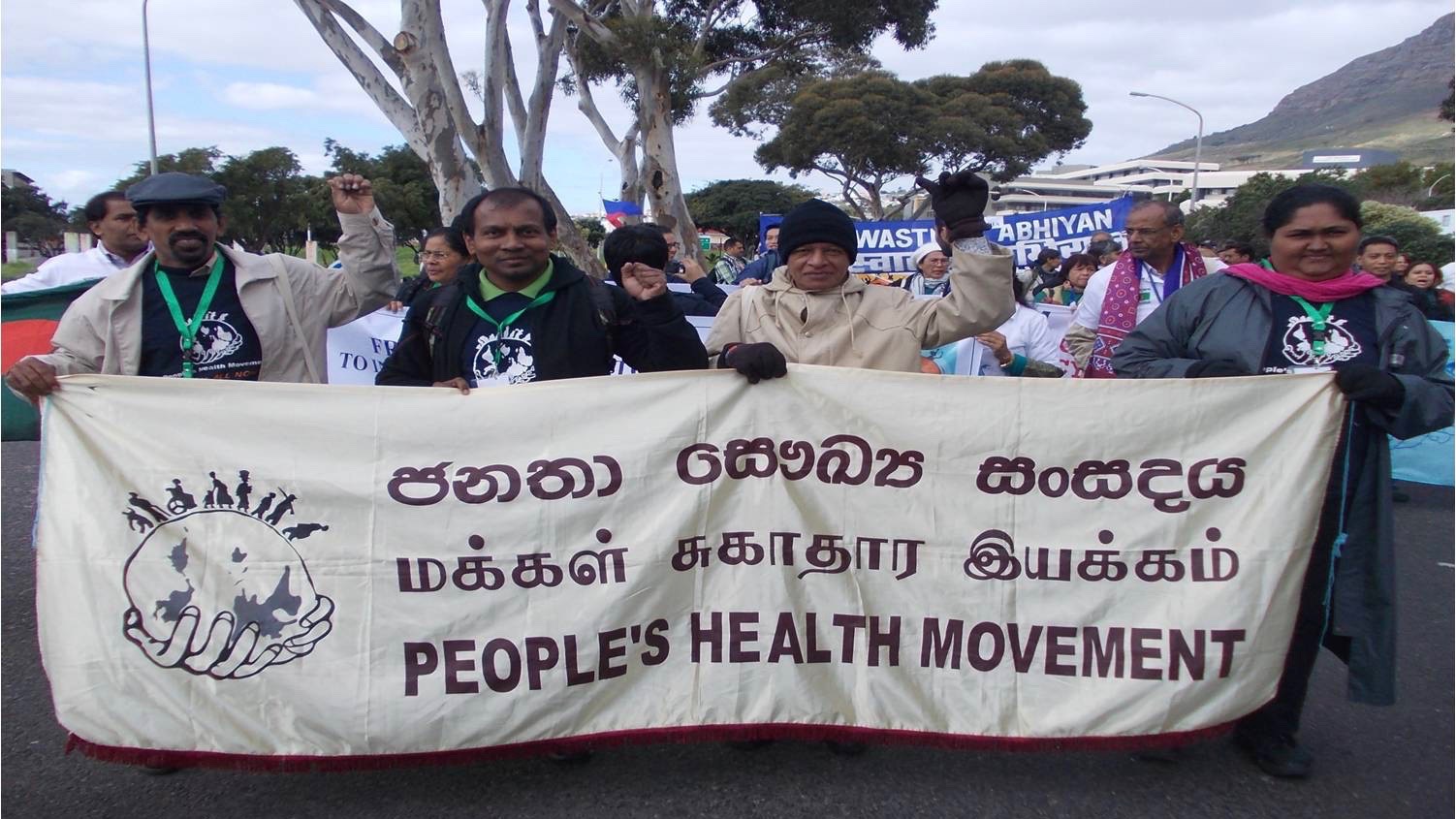The social and economic crisis in Sri Lanka continues to undermine people’s right to health. A severe shortage of foreign exchange has led to a scarcity of drugs and devices that has affected routine surgeries and clinical services. Close to 200 essential medicines are out of stock, and another 163 critical drugs could become unattainable over the next 2-3 months. Additionally, around 2,700 essential surgical and more than 250 regular laboratory items are not in stock. Nearly 5.7 million people are in need of immediate life saving assistance.
Lending organizations, such as the World Bank and the International Monetary Fund, are negotiating relief packages which could include cost-cutting measures and restricting the services provided by the tax-based health system. These strategies could adversely impact a health system that has an exceptional record of achievements, despite relatively low investments in health, providing all levels of care with no user charge.
What can be done?
At a macro level, health care professionals have already advocated for political changes, justice, and more transparent decision making that would help Sri Lanka overcome the economic crisis. Many health care workers are participating in protests calling for change, and sharing statements and calls to action among the different professions.
At a more specific level, a stronger social protection system needs to be established to help people cope with escalating out-of-pocket expenses and falling income. This system of social protection has to be linked to the health sector, and extended to cover newly emerging needs, like financial support for those affected by non-communicable diseases. This should particularly include strengthening of Primary Health Care and related services.
Building links of solidarity with networks and professional organizations overseas is another path that needs to be pursued in order to obtain delivery of necessary drugs, consumables, and medical equipment.
Finally, a reassessment of health interventions is needed. As resources remain scarce, health workers will need to rely more on their own clinical judgment rather than laboratory diagnostics. While this can help reduce the costs of health care for a while, it should not be taken as a replacement for the strengthening of the overall health system. There is ample evidence that health problems during an economic crisis are mitigated by strong health and social protection systems.
Health impacts of crumbling social services
Health indicators in Sri Lanka have been largely impacted by the crumbling of other social services. There are approximately 50% of school drop outs at Grade 5, when children are around 10 years old. This number has further increased to a great extent in the present situation, due to transport difficulties and lack of food. Nowadays, many children go to school only one day a week. It is important to not disregard the health implications of these changes. For example, discussions about reproductive health happen only at the level of secondary education, after many children have already dropped out.
That means a smaller number of teenagers have science-based insight into reproductive health, for example. There is no reproductive health education program for teenage mothers conducted by the Department of Health either. At the same time, the economic crisis is pushing parents to get their daughters married at a younger age, leaving young girls in a very vulnerable position.
According to the United Nations (UN), nearly five million Sri Lankans, including 200,000 in Colombo, are living hand to mouth, eating less, and borrowing money. Among those at risk are 56,000 children under five years of age, who suffer from severe acute malnutrition. Up to 22% of the population needs food aid. The UN also warned that 86% of households in Sri Lanka are reducing food intake, with some going without meals.
Just as the COVID-19 pandemic is receding in Sri Lanka, we are battling a fresh challenge: a health catastrophe stemming from economic and political crises. Threats to health from an economic crisis are multifold, as the current situation shows. Stress and lack of health care can increase cardiovascular morbidities. Malnutrition can affect generations of children. Communicable diseases can increase due to rising costs of amenities and the weakening of preventive and control measures. The accompanying political uncertainties, widespread protests, and social disruptions adversely affect mental health and worsen quality of life. In this context, there is no alternative but to prioritize the public health system.
Menu Nilukshika is health activist in the People’s Health Movement Sri Lanka.
People’s Health Dispatch is a fortnightly bulletin published by the People’s Health Movement and Peoples Dispatch. For more articles and to subscribe to People’s Health Dispatch, click here





